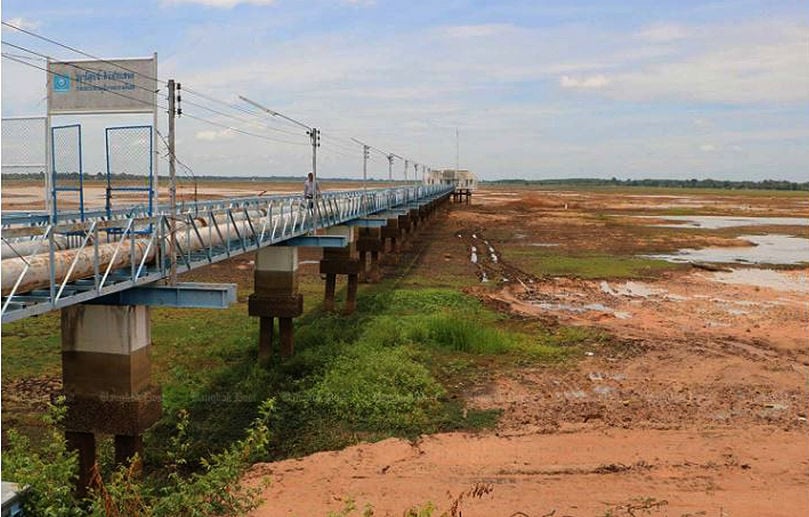Keeping Thailand’s taps from running dry

“There is no way that we can send enough water to supply all these farms.”
It could be the worst seasonal drought for four decades according to the Office of National Water Resources.
Speaking to the Bangkok Post, ONWR secretary-general Somkiat Prajamwong recalled that during the severe drought in 2015 (when Thailand was under military rule), soldiers were sent to protect wells from indiscriminate pumping by local villagers irrigating their farms.
Somkiat has a long history with the Thai Royal Irrigation Department and it the leading authority in the country when it comes to water management issues.
“Now the government can’t do that because the country has become a democracy. People will do whatever they want, and this could lead to disputes.”
The ONWR was created two years ago to address the country’s water issues and challenges, and is “in charge of water resource management and coordinating policies and goals across 20 state agencies”.
When head of the Royal Irrigation Department, Somkiat spent decades building irrigation canals and developing water infrastructures across the country, ranging from small dams to mega reservoirs. But he says the ONWR is different, serving more as a think tank to develop the country’s water strategies and policies.
He says the ONWR is also promoting less water-intensive crops, providing alternative jobs during periods of drought and proposing compensation for farmers who skip a year of planting due to this year’s drought.
“The situation will get worse because the RID might need to release fresh water, which should really be saved for consumption, to drive out seawater which is rushing into the Chao Phraya.”
“We are trying to limit the pumping of water to farmlands because we really have to save what little water we have for human consumption,” he told the Bangkok Post.
Thailand’s Central region is predicted to be the hardest hit by the looming drought, focussed on the 22 provinces along the Chao Phraya River. Somkiat also predicts farmland will be affected because the amount of land for farming has risen by 3 million rai in recent years.
SOURCE: Bangkok Post

PHOTO: Somkiat Prajamwong, the Office of National Water Resources secretary general – National News Bureau of Thailand
Latest Thailand News
Follow The Thaiger on Google News:


























